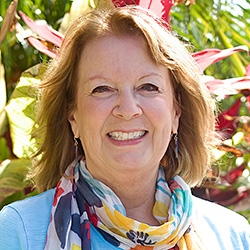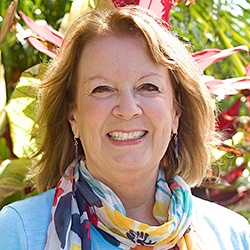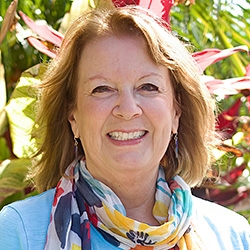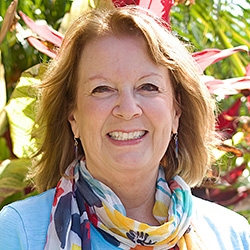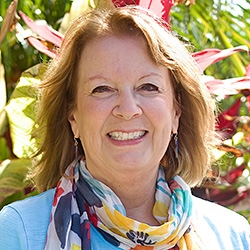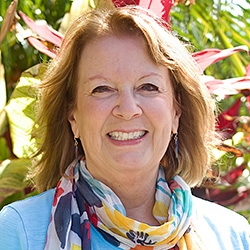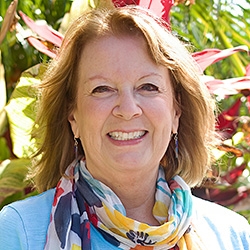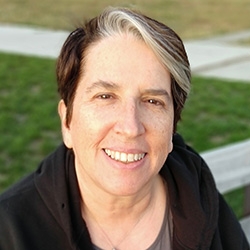
Search Results: power
-
Miki speaks to peace activists about connecting with the life vision in those who stimulate pain in them.
-
Join CNVC Certified Trainer Dian Killian to find out how to speak up in a way that ensures you're heard, even in challenging situations.
-
- Learn concrete tools for engaging with others as you embrace individual and collective liberation
- Find your own source of choice even in the face of challenges
- Release the constriction of scarcity
- Find an empowered option to respond to what is happening in our world
- Open the door to the possibility of thriving rather than merely surviving
-
Trainer Tip: When faced with doing a task that doesn't seem fun try saying to yourself something to the effect of “I do this activity because I value...”. Complete the sentence with related needs, then ask yourself if you still want to complete the task. This can take the demand out of the tasks. Next, choose accordingly. This can teach you about, or give you more access to, true choice in life.
-
Blame is the game that protects me from the understanding that the cause of all my emotional distress, fear, shame and guilt comes from the part of me I call "the inner voice." As long as I keep the big bony finger of blame pointed in your direction, I can remain unaware of the fact that it is what I am telling myself about your behavior that is stimulating my painful reactions.
-
Trainer Tip: Only after we connect to our unmet need can we make sound decisions that will transform our experience. For example, if you feel bored, connect to your unmet needs (eg. need for understanding the relevance, etc) and then look for strategies that will meet them (eg. ask the speaker how this topic relates to our lives).
-
Listen to this telecourse recording with CNVC Certified Trainer, Alan Seid, to explore what is meant by social change in the context of NVC, and learn how Nonviolent Communication can be a powerful ally for creating social change.
-
In this 10 session telecourse recording, world renowned CNVC Certified Trainer Robert Gonzales will help you discover a new level of self-acceptance that can lead to profound emotional healing and a deeper spiritual presence.
-
Trainer Tip: When we connect our feelings to our needs, we put ourselves in a postion to get our needs met and mourn when they aren't met. Here's a practical tip you can practice daily to improve the quality of your life.
-
Nonviolent Communication includes a practice of empathy that involves listening for feelings and needs no matter how someone expresses themselves, and reflecting back the feelings and needs when it is helpful to do so. You can reflect back in a traditional NVC manner, or in a more creative way, with metaphors.
-
One of the most important things you can do to live a meaningful and rewarding life filled with vitality is reclaim your emotions. Eric offers a tip to reclaim your emotions, rescuing you from the numb and deadening state of “fine."
-
When we take a leap in life and put our hearts out into the world in new or bigger ways—sharing a song, dance, or poem, writing a book, competing at a sporting event, giving a speech, and so on—there is greater potential for aliveness but also for shame and pain
-
Clinical psychologist, Robert Gonzales, Ph.D., uses an open dialogue with a practitioner to explore effective, compassionate methods to handle a volatile counseling situation. This resource has been newly remastered to a larger, higher quality video.
-
What could be, more often than not, overlooked when we think about or represent NVC or Marshall Rosenberg's work? This article busts some commonly held ideas and approaches to NVC. It challenges us to widen the lens of what it really means to be "life-serving", or speaking and hearing the "language of life". And it also speaks to how thinking can deepen feeling and relatedness...
-
Join Kelly Bryson and go Psychologically and Spiritually Spelunking into your own Caverns of Consciousness, using the inner mining tools of NVC Self-Empathy, Progoff Journaling processes, Focusing, and individual work. Get self-empathy tools that will help you rejuvenate yourself and your relationships.
-
Trainer tip: It's often easy for us to hear rejection when someone says “no” to us. If we focus on the rejection, we may feel hurt and fail to take the time to understand what is going on with them. However, if we focus on their feelings and needs, we're more likely to uncover what they want and what prevents them. To increase success in resolving conflicts and find solutions that work for everyone, hear the “yes” behind their "no".
-
Listen as Mary Mackenzie shares an eight step path to create your own NVC learning activities, based on your own NVC learning experience. In this session, Mary uses the value of requests and observations as teaching examples.
-
Trainer Tip: Are you meeting your needs for exercise? Consider which activities would help you meet your needs for physical and emotional health and fun, rather than focusing on what expert opinion says. If you feel overwhelmed and had a hard time sticking to the program feel free to tweak your program so that you enjoy it more.
-
- Learn the complexities of intersectionality
- Gain a deeper understanding of the affects of differing life experiences
- Clear the way for a more authentic connection
- Deepen your ability to hold others in compassion
-
- Learn your body’s “language” and how to listen deeply to it
- Expand your NVC toolbox with emergency self-empathy tips
- Explore drawing on your senses to get past what is blocking you
- Discover and practice that “missing step” in the NVC process




